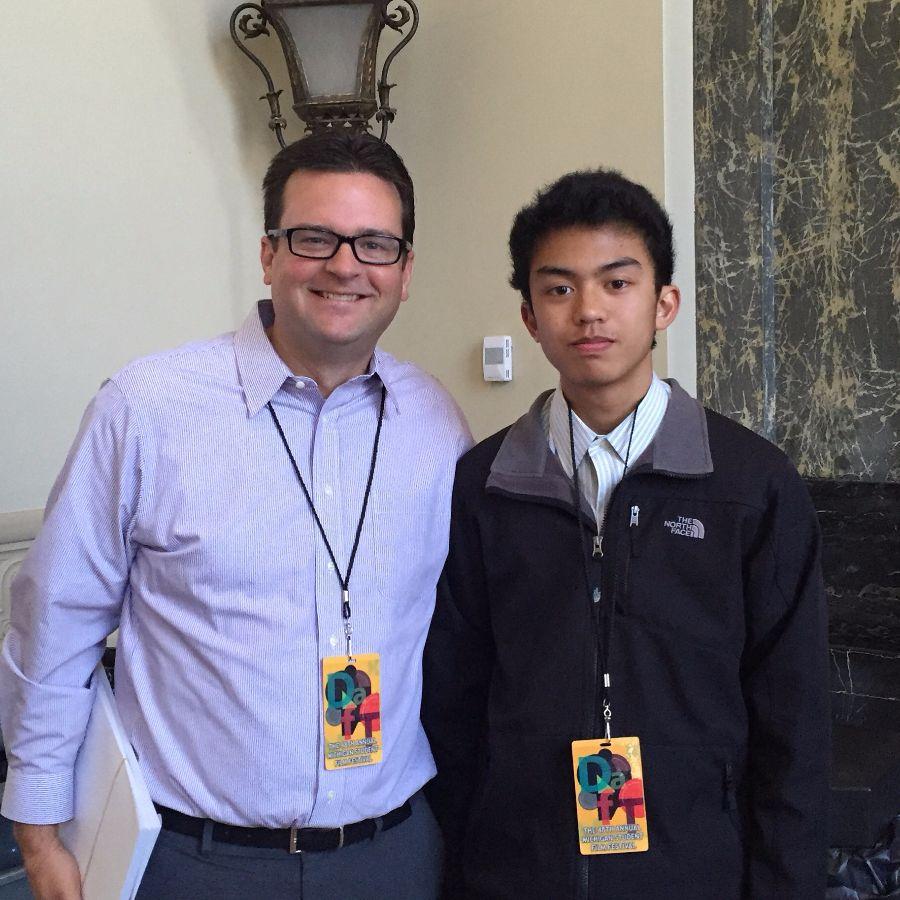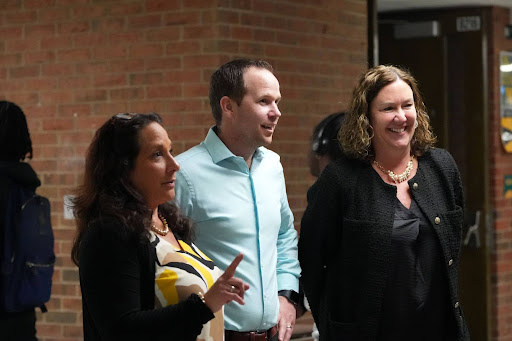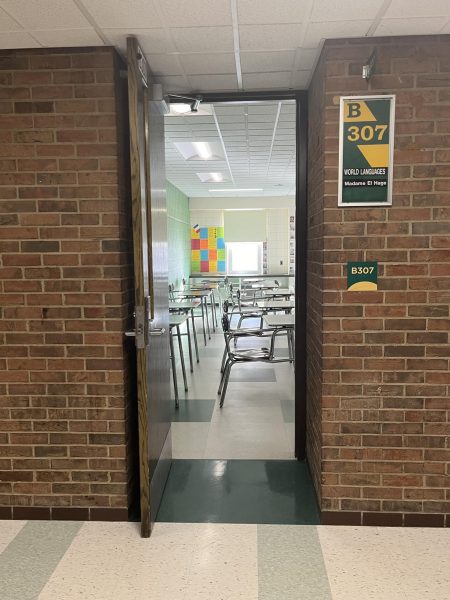TV production students win awards
Photo credit: Sebastian Cubillejo
Cubillejo and Stackpoole pose together at the Michigan Student Film Festival.
May 4, 2016
TV production students won awards for their service announcements and short films on April 23 and April 30. Students submitted their videos to the Michigan Student Film and Video Contest (DAFT), National Academy of Television, Arts and Science (NATAS) Student Emmy Awards and the Meijer Great Choices Film Festival.
“Basically you switch your entries and (the judges) go through and they nominate you for categories,” TV production teacher Brian Stackpoole said. “If you win a best of show (award at DAFT) then you get shown at the (Meijer Great Choices) Film Festival at the Detroit Institute of Art.”
Sophomore Sebastian Cubillejo won the best in show award at DAFT and a Student Emmy Award at the NATAS awards for his animated short film 2187. Several other students won excellence awards. Students are still waiting for results from the Meijer Great Choices Film Festival, which will take place in June.
Cubillejo worked on his video for over three months during class and feels he learned many skills from the experience. He hopes to participate in the competitions next year and win scholarship money in the future.

“(This experience will) definitely (help me in the future),” he said. “I already won many awards for 2187 and I’m already in the process of starting my next film.”
For seven years, students mainly entered into the DAFT Awards and Meijer Great Choices Film Festival. Stackpoole sees kids participating in the NATAS Awards more often.
Although he thinks it’s hard to predict whether or not a student will do well at a competition, he believes they provide students with valuable knowledge.
“It’s very difficult as far as the judging might not be quite consistent, so something that did extremely well in one contest might not do as well in the next contest,” Stackpoole said. “It’s a great learning experience for the students to have out of their control.”












